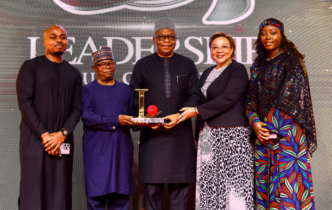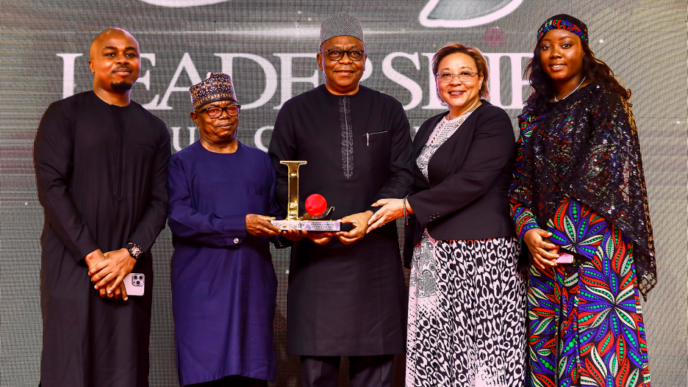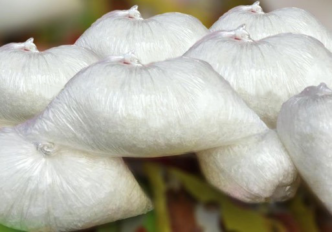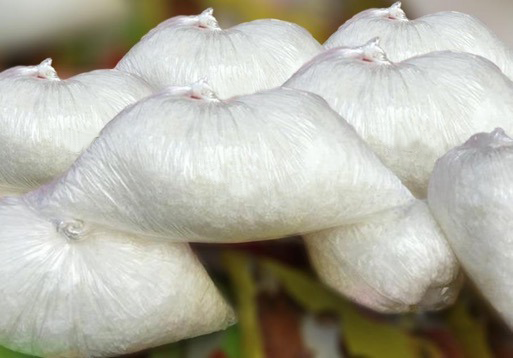According to the Ellen MacArthur Foundation, only 14% of plastic packaging worldwide is collected for recycling, highlighting the urgent need for industry-wide action. Some reports also show that solid waste generated in Nigeria is composed of 43.43% food waste, 15.27% plastic, 7.76% paper and others – where 20% of the waste generated is collected through the formal system and less than 10% is recycled. In response to this challenge, public-private initiatives have been established by government bodies and industry players in FMCG, agriculture, and dairy sectors to promote sustainability across the sector.
Against this backdrop, Nigeria’s dairy sector is increasingly embracing sustainable practices as part of a broader shift toward environmental responsibility and innovation. Key players within the industry are investing in eco-friendly infrastructure, energy- efficient technologies, and improved waste management systems to align with global sustainability goals. A notable example is Arla’s Lekki Factory in the Lagos Free Zone, which has become a hub for modern dairy production facilities that prioritise sustainable operations. These efforts reflect a growing industry-wide commitment to long-term environmental stewardship and responsible business practices- principles echoed in global frameworks such as the Future26 vision, which emphasise sustainability, innovation, and resilience across the dairy value chain.
Integrating Sustainable Practices in Nigeria’s Diary Industry
Increasingly Nigeria’s industry players are adopting innovative strategies to minimize environmental impact. One major area of progress is waste management, where dairy companies are implementing structured recycling programs for materials such as paper, cardboard, and plastics. For example, Arla Foods’ Lekki factory where Dano milk is packaged consistently recycles substantial amounts of waste to reduce its environmental footprint. In 2023, the producer recycled a total of 79 tonnes of paper/cardboard waste and 24 tonnes of plastic waste. By partnering with reputable recycling firms and leveraging systematic tracking, the industry is working hard towards responsible waste disposal and resource efficiency.
Opportunities for Growth and Innovation
Building a sustainable dairy industry in Nigeria requires more than isolated efforts. It demands a coordinated, long-term strategy that brings together public and private sector actors, development partners, and communities. The future of the sector hinges on its ability to adapt to environmental challenges, leverage innovation, and foster inclusive growth that benefits farmers, consumers, and the planet alike. Beyond recycling, players in the Nigerian dairy sector like Arla Foods are leveraging a range of environmentally conscious practices to drive sustainability across the value chain:
- Waste Milk Repurposing: Rather than discarding waste milk powder which may occur during the packaging process, Arla repurposes it as animal feed by sending it to the Arla Farm to nourish calves- which allows for waste reduction and maintains a sustainable livestock management framework.
- Sustainable Packaging: With the growing need to limit plastic waste, Arla actively explores eco-friendly packaging alternatives and modifications that will promote reusability and reduce environmental impact. This includes recyclable packaging materials designed to boost circular economy.
- Renewable Energy Integration: Across its operations, the company also uses innovative technologies to optimize energy efficiency at its facilities, including the use of solar power at the Arla Damau Farm in Kaduna to reduce its overall carbon footprint and energy consumption. These investments support cleaner, more energy-efficient production methods across the value chain.
As global demand for dairy products continues to grow, the Nigerian dairy industry finds itself at a crucial crossroads. Sustainability is no longer just a value-added feature- it is rapidly becoming a non-negotiable benchmark for long-term viability and competitiveness. From farm to factory, and down to the end-consumer, the entire dairy value chain must take a collective approach to drive meaningful change. This means embedding sustainable practices across every layer of the industry, ensuring that growth is balanced with environmental responsibility and social impact.
Towards a More Resilient Dairy Industry:
To truly transform the sector, stakeholders must prioritise several key areas. First, waste management practices need to evolve, with a focus on reducing, repurposing, and responsibly disposing of both organic and non-organic waste. Second, energy efficiency must become a central part of production processes, with a shift towards renewable energy sources like solar power that can reduce reliance on fossil fuels.
Thirdly, packaging innovation is essential- replacing or redesigning traditional plastic packaging with biodegradable or reusable alternatives will play a major role in minimising long-term environmental footprints.
Within this broader context, companies like Arla Foods have made valuable contributions through their partnerships with local farmers, implementation of sustainable technologies, and investment in capacity building. Arla’s collaboration with stakeholders—ranging from government bodies to grassroots cooperatives—has helped introduce best practices in responsible dairy farming, such as waste milk repurposing, solar-powered operations, and packaging innovations. These contributions are a strong example of how private sector leadership can support and accelerate industry-wide progress.
By investing in sustainability today, the Nigerian dairy industry can position itself as a resilient and forward-thinking sector—one that not only meets growing demand but also protects the resources and ecosystems needed to sustain it for generations to come. With shared commitment, innovation, and collaboration, the industry can move confidently toward a greener, more inclusive future.












